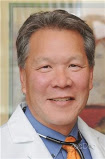Choosing a primary care physician is one of the most important health care decisions one can make.
And for doctors, choosing where to work is a major decision, too. Some doctors are in private practice. Others work for large medical systems or centers. Either way, each option comes with its own pros and cons for physicians—and for patients.
For Dr. Douglas Young, an internist and geriatrics specialist based in Sacramento, private practice was the way to go.
“I have much more control over the way medicine is practiced. I get to make decisions about policy and how my front office is run,” says Young, who is also medical director at Northern California Research, a clinical research center based in the city.

Furthermore, in private practice, patients can enjoy more personal interactions with the doctors and staff, he says.
“People at the front desk know your name,” Young says.
But back in the 1990s, Young worked for a large medical system.
“It was more impersonal,” he says. “If a doctor got a phone call and it was 10 minutes to five, it was like, just pass it on to the guy on call.
“Whereas now, I would take that call. I would take that call at 10 minutes to five, and I would take the call 10 minutes after five,” he says.
But patients with primary care doctors at medical centers have an advantage if they need to see a specialist, he says.
“Thinking back 20 years ago, it was much easier to have a patient seen by a subspecialist because they were probably right down the hall,” he says.
On the other hand, getting an appointment with a cardiologist, nephrologist or other specialists can be a slower process when getting a referral from a doctor in private practice.
“Where I sit now, as a private practitioner, I don’t have access to anybody else’s schedule. So I’m not able to just say, ‘Put them on the schedule.’”
And when it comes to getting into clinical trials, patients with doctors in large medical groups or even smaller practices may find it more difficult to participate in a clinical trial because the physician or provider they see is not aware of what trials are available.
“I have much more control over the way medicine is practiced. I get to make decisions about policy and how my front office is run. … People at the front desk know your name.”
Dr. Douglas Young, an internist and geriatrics specialist based in Sacramento and medical director of NORCARE
“But for myself, because I’m part of (NORCARE), the potential to be in a clinical trial is much greater in my practice because it’s part of what I do,” he says.
So, in the end, for physicians as well as patients, it all comes down to choice.
“Do you want to be an employee and not have to worry about the administrative issues of running a practice? Or would you rather have more say in how a practice is run and how your patients are taken care of?”
And for patients, they should consider whether a more personal experience with their doctor is important to them or not.
“It depends on what you want.”
For more information, visit www.northerncaliforniaresearch.com or call 916-484-0500.




























